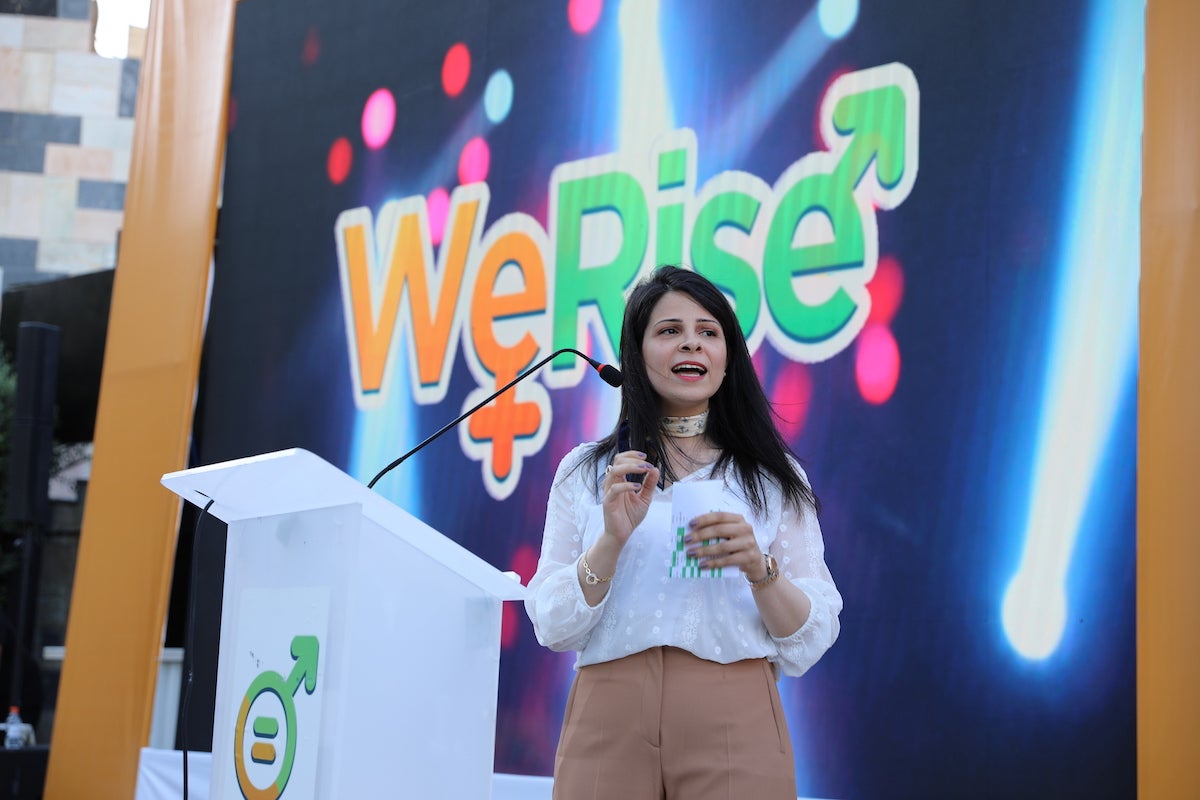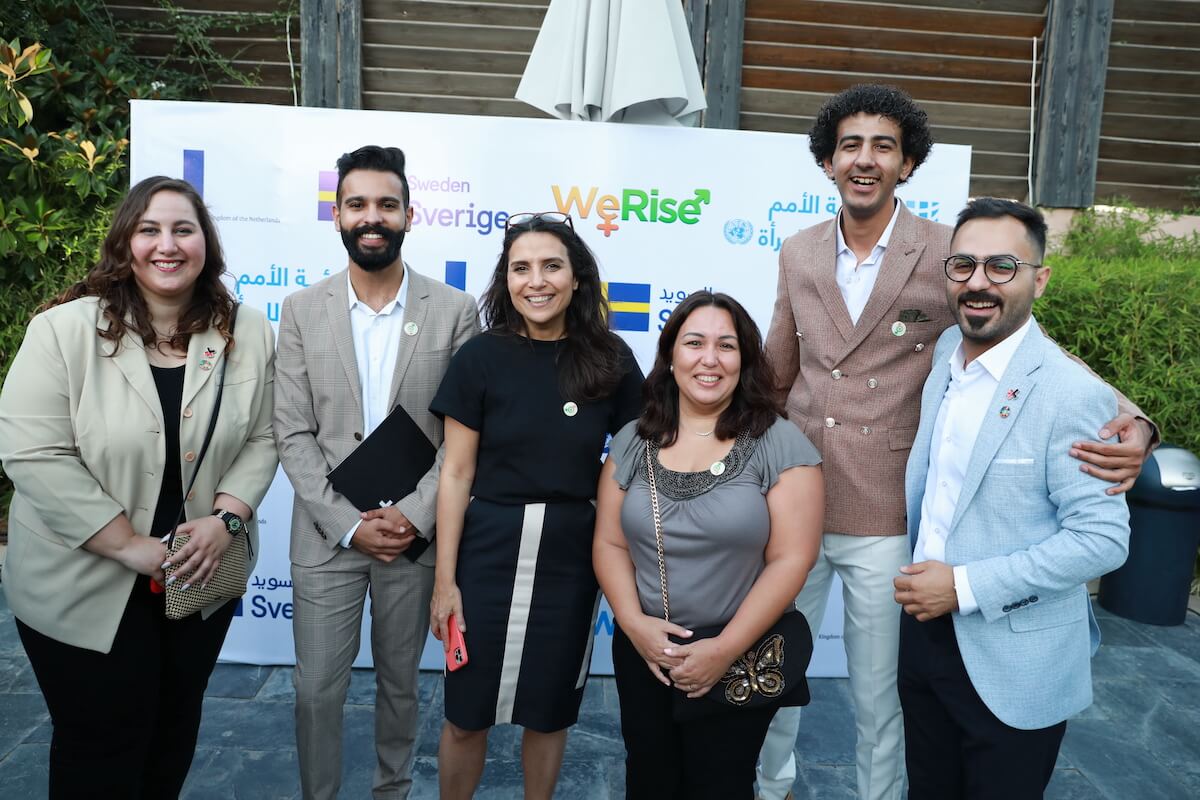WeRise app bridges generations to promote gender equality through gaming
Last July, hundreds of people from across the Middle East and Northern Africa (MENA) region—including activists, influencers, academics, journalists and the Swedish Ambassador to Jordan—gathered to celebrate the launch of WeRise, an edutainment app aimed at raising awareness on gender equality and women’s empowerment. With support from UN Women, the platform was developed by youth for youth—and its success highlights the impact that new voices, ideas and technologies can have on the gender equality space.

“It’s really important to be always innovative,” explained Laith Abu-Taleb, a UN Women youth mobilization specialist and a WeRise co-developer. “We found out that there is a gap in promoting gender equality using modern technologies. After brainstorming with the team, we came up with the idea of developing a gamification platform that focuses on promoting gender equality and works as a tool to raise awareness, create interactive communities, and enhances creativity.” (Learn more about Laith, and the activism journey that led to the development of WeRise, here.)
The app’s development, driven by UN Women’s regional programme “Men and Women for Gender Equality” and the HeForShe youth movement with funding from the governments of Sweden and The Netherlands, began in Jordan in 2020. During this first phase, UN Women challenged users to reflect on gender stereotypes and discriminatory gender roles with the aim of promoting critical thinking and behavioral change among Jordanian youth.

“Young people in Jordan have demonstrated exemplary efforts in leveraging innovation in their advocacy efforts,” said Aisha Mukhtar, Deputy Representative of UN Women Jordan. “This is a key driver for change.” H.E. Alexandra Rydmark, Sweden’s Ambassador to Jordan, agreed, saying: “It’s encouraging to see the creativity in using gaming as a platform to educate, raise awareness and foster discussions on gender roles and stereotypes.”
Today, WeRise is in use across the MENA region. It is available in Arabic, English and French, with content designed by over 100 young people from Egypt, Lebanon, Jordan, Morocco, Palestine and Tunisia. Targeted at 13 to 35 year olds, the app offers a variety of games and puzzles on the topic of gender equality, as well as social platforms on which users can share blog posts, interact via forums, and call for action from the community.
“Using the gamification concept and promoting gender equality is in its best format in WeRise,” said Dana Kakeesh, a 36-year-old professor from the University of Jordan. It has so far recorded 5,505 downloads on the App store and Google play—the highest number of downloads among development organization-sponsored apps.
Lara Quarani, a 17-year-old high school student from Jordan, downloaded the app and quickly became a fan. “I love playing the games with my friends at school,” she said. “We even used WeRise to construct the conversation around gender equality in our classroom.”








